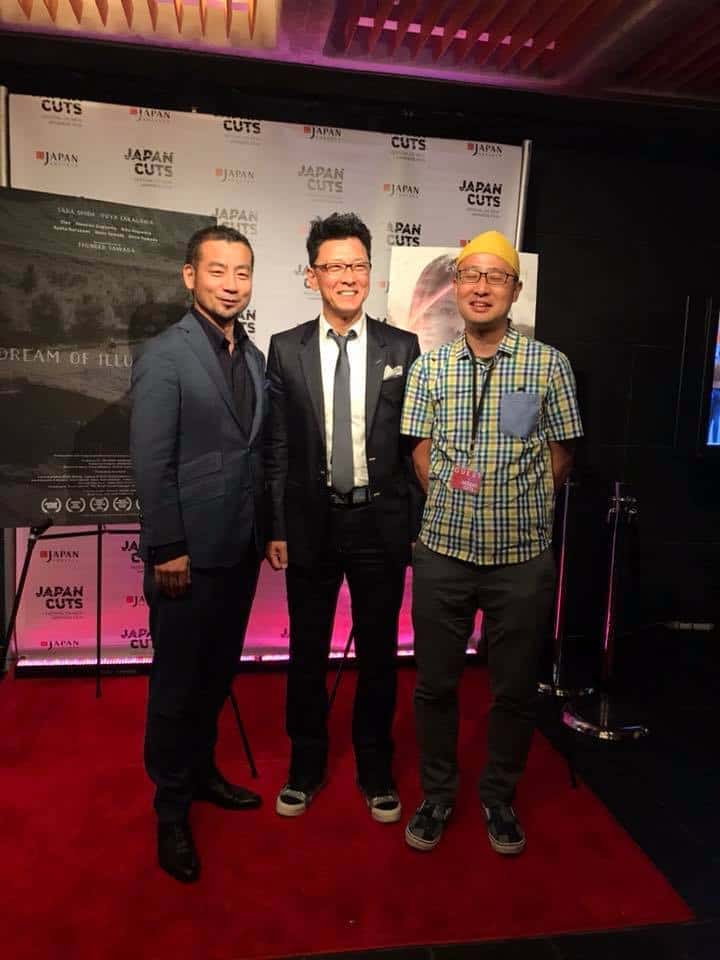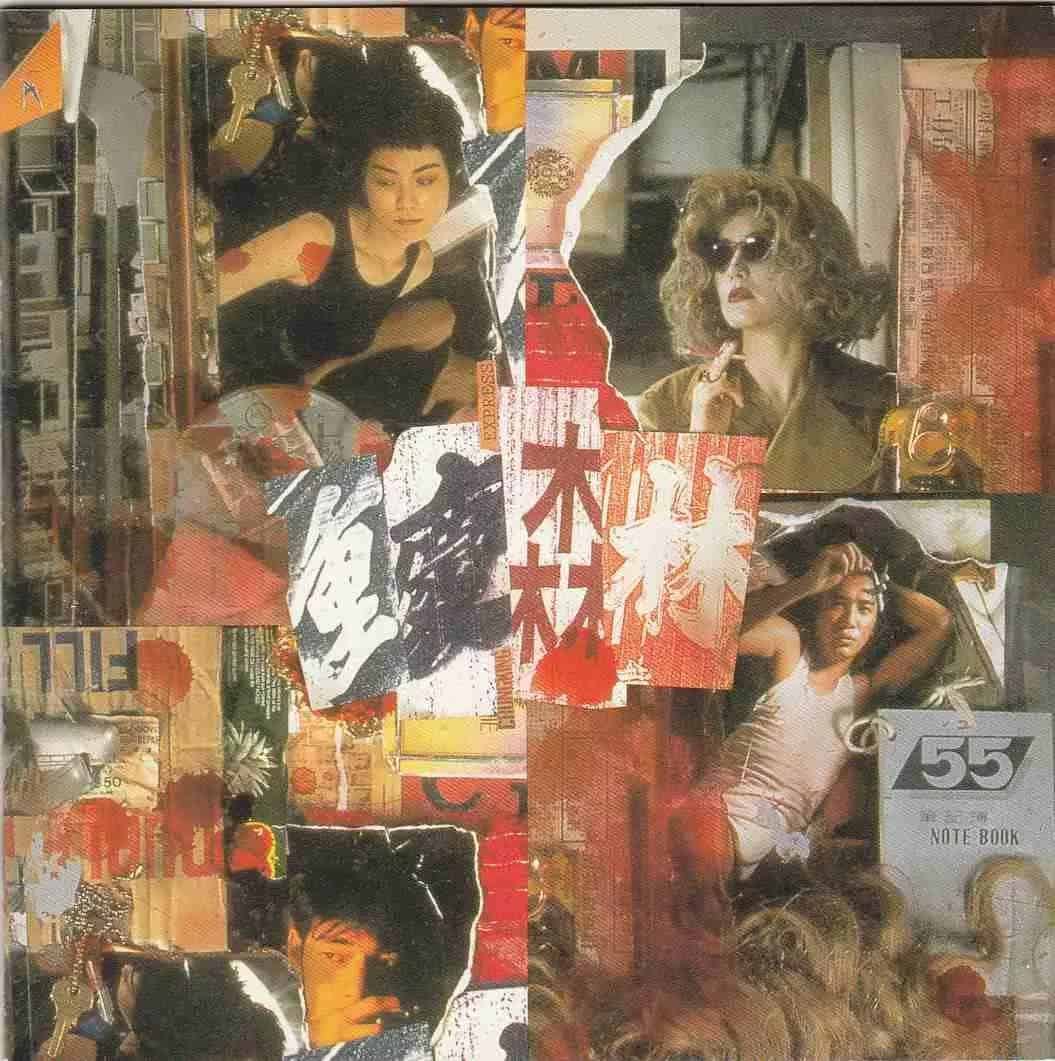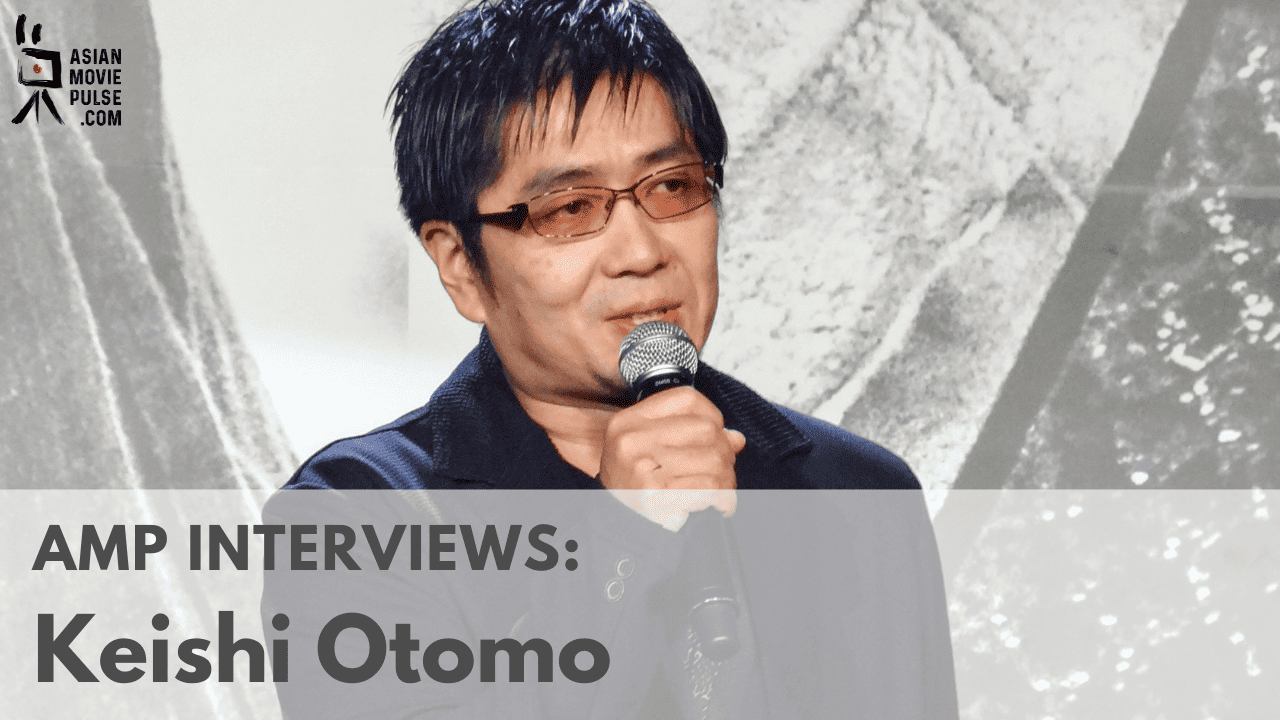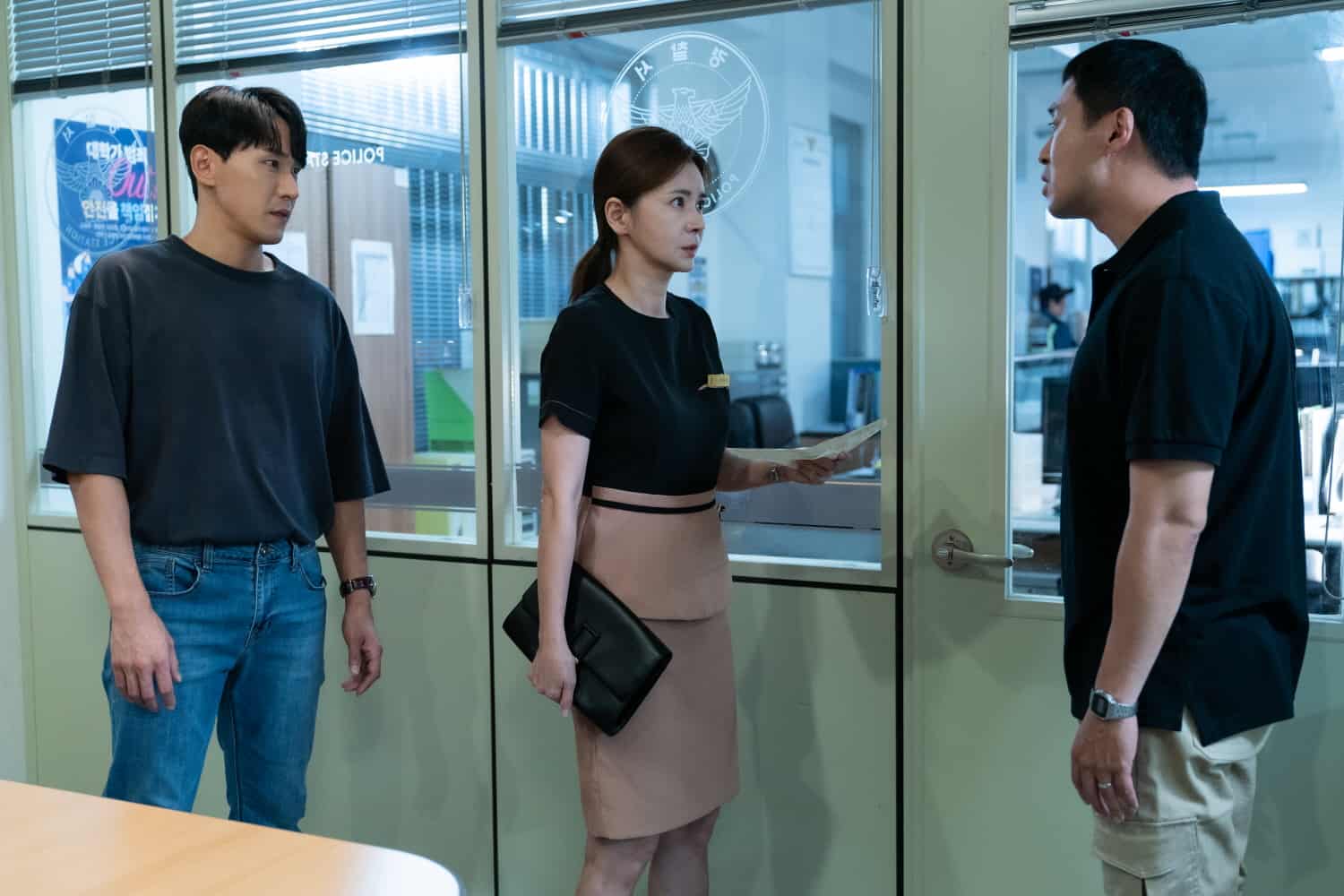After growing up in Aomori and graduating from college, Thunder Sawada held jobs working for a land shark, customer support, and freelance writing before beginning his career as a contemporary artist. In 2007, he received the Taro Okamoto Contemporary Art Award, and in 2012 completed his studies at the Graduate School of Film and New Media, Tokyo University of the Arts. He won the Isama Studio Film Festival Scenario Award in 2010 and 2015.
Yuya Takagawa was Born in 1962 in Mie Prefecture. He is an actor, narrator and theatre director working in theatre, TV and film who began his acting career at Tatsuya Nakadai's Mumeijuku acting school. He has appeared in films such as 13 Assassins (2010) by Takashi Miike and was recently in Rolling (2015) by Masanori Tominaga, Lost Serenade(2016) by Masato Ozawa and Alley Cat by Hideo Sasaki (JAPAN CUTS 2017), among others. He is the lead actor in Dream of Illumination.
On the occasion of their film, Dream of Illumination, screening at Japan Cuts 2018, we speak with them about the inspiration behind the film, the connection of contemporary art and filmmaking, Yuya Takagawa's role as Ueda, and many other topics.

*Questions provided by Rouven Linnarz
What was the inspiration behind “Dream of Illumination?
Thunder Sawada: The base of the story is that something really similar to the Lehmann Brothers crush that happened in US happened in Japan in the early 2000's. Back then, I was working as a real estate agent and that has been the basis and the inspiration to my story.
One of the main concepts in the film is the relationship between Ueda and Nana. Can you elaborate on this?
TS: There is this idea that the bond between child and parent is very strong and different from other “relationships.” For example, you can divorce your wife and quit your company and leave these bonds behind. However, the bond between a parent and child is quite different and often has to lead in some kind of next chapter, in some ways.
You are a well-known contemporary artist in your home country so naturally you must have gained a keen observation on its culture and people. How did this capacity apply to “Dream of Illumination”?
TS: Regarding the script, as someone who works at contemporary art I wanted to be more political, and so I ended up with a script, which is kind of political on itself. So the political setting of Japan today is embedded into the story. Regarding the form and the theory behind my storytelling, it is probably not conventional. In fact, the way I built the suspense is inspired by the storytelling often seen in video art and other forms of contemporary art.

Your character, Ueda, is a real estate agent. How far does he fit into the category of a “coward” or “traitor”? What is your understanding of him and his relationship to the world around him, especially his daughter Nana?
Yuya Takagawa: For someone who has a lot of influence over other people, I do believe there is a side of him that is cowardly. What he feels is often related to the relationship he has with his daughter, since he is thinking what he can do for his daughter and that is something he is always thinking about. And the fact he is always thinking about her makes him a good person in some ways, but the way he chooses to go about it is not always on her best of interest
You have chose to shoot the film in black and white. What was the reason behind this decision?
TS: There are colors in the film that I didn't want in the movie and more specifically, red and green. I assume them as emotional colors and I didn't want them to be in the film. The other reason is that in real estate, the location of a place dictates its price and I wanted to keep that more generalized, by not revealing the location. And by using black and white I got rid of some elements that would suggest a specific location
The score by Keni Kariu supports the mood of your film tremendously. How was working with the composer and what was your approach to the film in terms of music?
TS: I've known him for at least 15 years, so our relationship goes back a long time and for a long time, neither of us had an interest in video arts and the music world as a means of making money. It was recently that I learned that he was composing music for commercials and that is when I reached out to him. Up to the most part of our collaboration, we were working together, making the music together, but one day he said. “I got it, leave it to me, I can take over from here” . So, in fact he created the music, the way the music comes into the movies, the moments the music is heard in the film, even those were his decisions.

How did audiences in Japan react to the film?
TS: In Japan, I noticed the opinions about the film vary, some were really for but others against it. I believe the reactions varied according to the lifestyle and the background of the members of the audience. I found there was much difference in the opinions of the people who live outside the cities as opposed to the ones living inside cities. Actually, the last shot, where the father and daughter smile, that is the one that was interpreted quite differently. It is very rare in Japan to have so many varied opinions.















